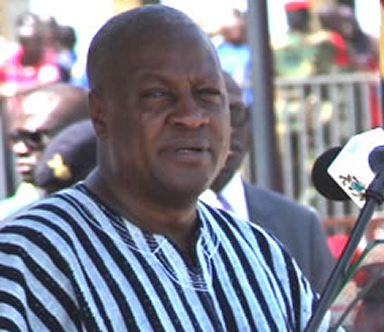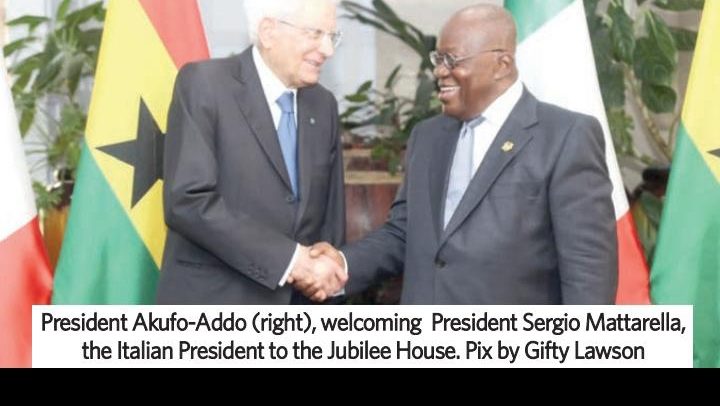
“Peace is not an absence of war; it is a virtue, a state of mind, a disposition for benevolence, confidence, justice.”—Baruch Spinoza, Dutch philosopher.
Executive Summary
Ghana’s electoral “Peace Pact,” introduced in 1996 and formalised in 2012, aims to prevent violence and ensure credible elections. Despite its noble intentions, this policy brief critically examines the Pact’s effectiveness and limitations in Ghana’s evolving democratic landscape.
Key findings:
- The Peace Pact lacks legal enforceability, operating as a moral commitment rather than a binding agreement
- While contributing to some political stability, the Pact has not eliminated electoral violence, with significant incidents occurring in recent elections
- Underlying socio-economic issues, deep-rooted political divisions, and weak implementation mechanisms undermine the Pact’s effectiveness
This brief proposes comprehensive measures to either strengthen the Peace Pact or create conditions that render it unnecessary:
- Strengthening electoral institutions and enforcement mechanisms
- Implementing legal reforms to address electoral malpractices
- Enhancing civic education and community engagement
- Developing robust conflict resolution mechanisms
- Addressing underlying socio-economic grievances
The analysis concludes that while the Peace Pact has played a role in promoting peaceful elections, Ghana must move beyond symbolic gestures to create substantive, systemic changes that foster a truly tranquil and democratic electoral process.
Despite the peace pact, the recurring violence in recent elections underscores the critical need for immediate action. Failure to address the pact’s shortcomings risks further erosion of public trust in the electoral process, potentially destabilising Ghana’s democracy.
#ElectoralPeacePact #DemocraticIntegrity #PoliticalViolencePrevention #InstitutionalReform #CivicEngagement
Introduction: The Illusion of Peace in Ghana’s Electoral Arena
In the theatre of Ghana’s democracy, the electoral “Peace Pact” stands as a grand gesture—a promise of civility amidst the tumult of political competition. Arising from the ashes of military coups and civil unrest, this “ritual of reconciliation” has become a cornerstone of Ghana’s electoral process since 1996. Yet, as violence continues to mar elections and is arguably increasing, one must ask: Is this pact a shield against chaos, or merely a paper tiger in a jungle of political ambition?
This policy brief strips away the veneer of Ghana’s celebrated Peace Pact, exposing the stark reality beneath. From its origins as a response to post-1992 electoral tensions to its current status as a pre-election tradition, we trace the evolution of this political ceremony. But more importantly, we challenge its efficacy in a nation where the ink of signatures barely dries before blood spills at voter registration centres and polling stations, in a milieu of voter intimidation and suppression by nondescript militia and security forces under the guise of an election security management system in which the military plays undemocratic roles.
As we dissect the anatomy of this agreement—its lofty goals, glaring weaknesses, and unfulfilled promises—we confront an uncomfortable truth: in a society where deep-seated grievances and political manipulation run rampant, can a voluntary pledge safeguard democracy? Or have we, in our complacency, hypocrisy and ostrich politics, allowed form to triumph over substance, leaving the true work of peace-building undone?
This brief is a call to action, a demand for introspection, and a roadmap for reform. Ghana must move beyond the pageantry of peace and confront the complex realities that threaten the very foundation of its democratic experiment.
Background and Evolution of the Peace Pact in Ghana’s Electoral Arena
Since the inception of the Fourth Republic in 1992, Ghana has held eight successful democratic elections, alternating power transitions between the two major political parties in 2000, 2008 and 2016. The “peace pact” in Ghana’s electoral history emerged as a response to the challenges faced during elections under the Fourth Republic, beginning with the 1992 Constitution. It emerged to respond to the tumultuous political climate preceding and following the return to multi-party democracy in 1992. Before this period, Ghana experienced a series of military coups and unstable governance, culminating in civil unrest and a breakdown of social cohesion. While the first elections in 1992 were largely successful, tensions and accusations of electoral malpractice marred them. The 2008 elections, in particular, highlighted the need for measures to ensure peaceful and fair elections. However, the Peace Pact, also known as the “Kumasi Declaration” or “Kumasi Accord,” was first introduced in Ghana’s electoral process in 2012, responding to growing concerns about potential violence during elections.
However, the formal “Peace Pact” concept in Ghana’s electoral process predates the Kumasi Accord (2012). The first notable peace agreement in Ghana’s modern democratic era was implemented for the 1996 elections. This initiative was known as the “Inter-Party Advisory Committee” (IPAC) agreement. While not called a “Peace Pact” then, it served a similar function by bringing political parties together to agree on peaceful conduct during elections. The more formalised version, explicitly known as the “Peace Pact” or “Kumasi Accord”, came later, but the general concept of pre-election peace agreements in Ghana traces back to the mid-1990s. The “peace pact” was undertaken to encourage political parties to commit to non-violence, respect democratic processes, and uphold electoral integrity. This initiative has since become a traditional electoral staple in subsequent elections, evolving over subsequent election cycles, including those in 1996, 2000, 2004, 2008, 2012, 2016, 2020 and beyond, with political leaders publicly committing to peace before elections.
Over the electoral cycles, however, it does appear that Ghana’s political stakeholders have become complacent, sinking into a state of self-satisfaction and a blind glimpse of potential dangers or deficiencies in the substance of the country’s political and electoral culture, ignoring risks and becoming impervious to commonsense changes.
Timeline of Ghana’s Electoral Peace Pact
- 1992: Return to multi-party democracy
- 1996: First notable peace agreement (IPAC)
- 2000: Peace pact contributes to peaceful power transition
- 2008: Elections highlight the need for more robust peace measures
- 2012: Formal introduction of “Kumasi Declaration” or “Kumasi Accord”
- 2016: Pact evolves to include endorsements from traditional and religious leaders
- 2020: Violent incidents occur despite the pact, resulting in eight deaths
- 2024: NDC lays down conditions for signing the pact
Key Stakeholders
- Political Parties: Primarily the NDC and NPP, as well as smaller parties
- Role: Signatories to the pact, responsible for adherence
- Interest: Gaining/maintaining political power
- Electoral Commission (EC):
- Role: Organises elections, monitors compliance with the pact
- Interest: Ensuring free, fair, and peaceful elections
- Civil Society Organisations (CSOs):
- Role: Promote dialogue, educate citizens, monitor electoral processes
- Interest: Strengthening democracy, preventing violence
- Security Forces:
- Role: Provide security for the elections; maintain public order during elections
- Interest: Preventing violence, protecting citizens, apprehending offenders
- International Observers:
- Role: Monitor elections, provide recommendations
- Interest: Promoting democratic norms, preventing conflict
- Citizens:
- Role: Participate in elections, adhere to peaceful conduct
- Interest: Free, fair and transparent representation, stable democracy yielding democratic dividends
Rationale and Nature of the Peace Pact
The primary rationale was to prevent electoral violence and ensure the credibility and transparency of the electoral process, mitigating the risk of electoral violence and promoting political tolerance among competing parties. The primary justification of the Peace Pact is to limit intimidation, violence, and inflammatory behaviour during campaigns, promote peaceful elections and prevent violence. It aims to:
- Foster a culture of peace among political parties and their supporters
- Encourage political leaders to commit to peaceful conduct publicly
- Provide a framework for resolving disputes through legal and peaceful means
- Enhance public confidence in the electoral process
Given Ghana’s historical context of political instability, fostering a culture of peace was deemed essential for the sustainability of the country’s democracy.
The “peace pact” involves public commitments from political parties to adhere to non-violent and respectful campaigning. It includes regulations to limit abuse of incumbency, ban defamation, and establish enforcement bodies to reprimand violators. The Electoral Commission (EC), civil society organisations (CSOs), and international observers are critical in monitoring and ensuring compliance. However, the Peace Pact is a voluntary agreement signed by presidential candidates and political party leaders to uphold certain principles during electoral periods. It typically includes commitments to:
- Commitments to Peaceful Conduct and Non-Violence: Parties pledge to refrain from using inflammatory language and violent rhetoric, reject violence as a means of political expression and the use of provocative actions, condemn any acts of aggression that may arise, work collaboratively to ensure a peaceful electoral environment, accept the results of elections or challenge them through legal means, and call on supporters to remain calm before, during, and after elections.
- Promotion of Dialogue: Encouragement of dialogue between political factions to resolve disputes amicably.
- Public Assurance of Peace: By publicising a commitment to peace, the pact aims to reassure citizens about the integrity of the electoral process and the intentions of political actors.
- Monitoring Mechanisms: Some iterations of the pact involve CSOs and international observers to monitor adherence to the agreed principles.
- Public Engagement: The pact is often accompanied by campaigns to educate the electorate about the importance of peaceful elections and the role of citizens in safeguarding democratic processes.
Critical Analysis of the Peace Pact’s Effectiveness
Patent Flaws and Weaknesses: Charade of Form Without Substance
A fundamental flaw in the peace pact’s architecture is its need for legal enforceability. However, it also potentially fosters goodwill and justice among political actors. This echoes Baruch Spinoza’s philosophical argument that true peace transcends the mere absence of conflict, involving positive qualities and a mindset that fosters goodwill and justice. Spinoza reminds us that peace is not only about external agreements but also inner attitudes and actions. This superficiality in political discourse aligns with an Orwellian worldview, where the tendency of leaders or movements to prioritise appearances over meaningful action poses dangers to the democratic project. Without genuine commitment and impactful policies, the solution lies in inspiring leaders and stakeholders to substance over mere appearances. This means fostering a broader culture of peace, justice, and civic responsibility, and it’s a goal worth striving for.
Despite its good intentions, the peace pact has yielded mixed results in preventing electoral violence. While it has contributed to Ghana’s relatively peaceful elections compared to other countries in the region, violence still occurs. The pact has sometimes reduced violence, contributed to political stability, and fostered dialogue among parties. However, it has not been universally effective in eliminating electoral violence. For instance, the 2020 electoral process, from voter registration to the general elections, saw violent incidents resulting in eight unprecedented deaths despite the pact’s existence.
Nevertheless, Ghana’s electoral peace pact, initiated in 1996, has been consistently signed by the major political parties, the NDC and the NPP, despite periodic resentments. However, it’s important to remember that this consistency among major parties masks the concerns of smaller political entities. These concerns, such as the pact primarily favouring larger parties and not adequately addressing their concerns regarding electoral fairness, are valid and need to be addressed.
The peace pact now faces its most significant challenge yet. Visibly dismayed about the pact’s ineffective implementation against many recent caseloads of violence and other lacunas, the NDC, the major opposition party, has laid out six conditions to meet before they agree to sign the peace pact for the 2024 elections. These conditions, ranging from implementing past inquiry recommendations to prosecuting those responsible for electoral violence, echo the broad failures of the peace pact tradition. If the NDC carries out its threat of boycotting the signing, it would mark an unprecedented break in the pact’s history.
In conclusion, while Ghana’s peace pact has played a role in maintaining relative stability during elections, it falls short of being a panacea for electoral violence. The country appears to be placing its faith in the false narrative of being a beacon of democracy in a continent with significant governance deficits or that the peace pact alone can ensure peace without concrete steps to tackle root causes and deal with perpetrators. Ghana must address these fundamental issues to transform the peace pact from a symbolic gesture into a substantive commitment to democratic integrity.
Reasons for Pact’s Ineffectiveness
Several factors could contribute to the limited effectiveness of the Peace Pact, such as:
- Lack of Legal Enforceability: The pact is a moral commitment rather than a legally binding document. Often, there is insufficient enforcement of the pact, leading to non-compliance by political actors and state institutions. Essentially, its voluntary nature means no legal repercussions for parties that violate its terms, making it easier for some actors to disregard their hollow commitments.
- Limited Reach: The pact is signed by top politicians but may not effectively influence all supporters at the grassroots level.
- Political Manipulation by Political Actors: Some political leaders exploit the pact for their own gain, undermining its effectiveness. Other politicians may perceive benefits in violating the agreement if they believe it serves their party’s interests, inciting violence for tactical advantages and undermining the spirit of the pact.
- Underlying Tensions and Deep-Rooted Grievances: Deep-seated political and long-standing political and ethnic grievances persist despite the pact, fuelling violence despite the pact. In practice, political polarisation involving deep-seated political divisions and tribal affiliations can and has exacerbated tensions, leading to violence that the pact cannot adequately address.
- Socio-Economic Factors: Poverty, unemployment, and disenfranchisement fuel discontent and violence, irrespective of political agreements.
- Weak implementation: There are insufficient mechanisms to monitor and enforce adherence to the pact and no investigations or prosecutions.
- Weak Civil Society Engagement: Inadequate CSO involvement in monitoring and advocating for peace diminishes the pact’s impact.
Case Study: 2020 Election Violence
Despite the existence of the Peace Pact, the 2020 electoral process was marred by violence. In the Techiman South constituency, military personnel opened fire on protestors at a collation centre, resulting in the deaths of two individuals. To date, the eight deaths and other infractions have not been thoroughly investigated, and the culprits are held accountable. These incidents highlight the Pact’s inability to prevent state-sanctioned violence and the lack of accountability mechanisms.
International Comparisons
Ghana’s idea likely inspired Kenya’s initiative in the aftermath of its 2007 elections and the post-election crisis of January 2008, which pitted Raila Odinga’s opposition Orange Democratic Movement (ODM) against Mwai Kibaki’s Party of National Unity (PNU), with pronounced ethnic undertones. This saw up to 2,000 people killed and as many as 300,000 displaced from their homes. A similar initiative inspired the idea in West Africa, particularly Nigeria’s 2015 “Abuja Peace Accord” under the watch of Mr Kofi Annan and Chief Emeka Anyaoku, signed by the two leading presidential candidates, President Goodluck Jonathan of Peoples Democratic Party (PDP) and General Muhammadu Buhari of All Progressive Congress (APC), and twelve candidates of other political parties. The Accord aimed to prevent the recurrence of the 2011 post-election violence that resulted in the death of over eight hundred persons and created tensions in the country. Consequently, the National Peace Committee (NPC) was set up to monitor and promote dialogue between the two leading candidates.
Lessons for Ghana (and African Democracies)
- Need for continuous dialogue beyond election periods
- Importance of addressing root causes of conflict
- Value of international support in mediating agreements
Conclusion: From Symbolism to Substance
While well-intentioned, Ghana’s electoral Peace Pact has proven to be an insufficient bulwark against the tides of political violence and electoral malpractice. Its voluntary nature, deep-rooted societal issues and weak enforcement mechanisms have rendered it more symbolic than substantive. The persistence of violence in recent elections starkly illustrates the limitations of this approach.
To move beyond political theatre and create genuine electoral peace, Ghana must embrace a comprehensive, multi-faceted strategy that addresses the root causes of electoral conflict and violence and strengthens the foundations of its flawed democracy.
Recommendations
Short-term Actions (0-1 year)
- Legal Empowerment: Transform the Peace Pact from a voluntary agreement into a legally binding document with clear, enforceable consequences for violations.
- Strengthening Enforcement and Sanctions: Implement stricter enforcement mechanisms and penalties for violations by law enforcement agencies and institutions, including investigations, prosecutions, and possibly disqualification from elections.
- Media Responsibility Framework: Create and enforce guidelines for responsible election coverage, promoting fact-based reporting and discouraging inflammatory rhetoric.
Medium-term Actions (1-3 years)
- Institutional Reform: Strengthen the EC’s independence and capacity, empowering it to manage elections effectively and impartially without external influence and interference, especially the executive arm of government.
- Judicial Overhaul: Establish a specialised electoral court to swiftly and fairly adjudicate election-related disputes, ensuring timely resolution and accountability.
- Grassroots Engagement: Implement comprehensive civic education programmes that foster a culture of peaceful democratic participation and non-violence at the community level.
- Conflict Resolution Mechanisms: Dialogue and Mediation: Develop structured conflict resolution mechanisms, including triggers, which can be activated during elections to address grievances before they escalate into violence and encourage inclusive dialogue to ensure all stakeholders are part of the peace process.
- Strengthening Civil Society: Strengthen CSOs’ roles in monitoring electoral processes, promoting dialogue, and educating citizens about their rights and responsibilities.
Long-term Actions (3-5 years)
- Economic Initiatives: Develop targeted programs to address unemployment and poverty, particularly among youth, to reduce vulnerability to political manipulation.
- Transparency Measures: Implement real-time result transmission systems and enhance election observation to increase trust in the electoral process.
- Conflict Early Warning System: Establish a national network to identify and respond to potential election-related conflicts before they escalate.
- Long-term International Partnerships: Engage international organisations in sustained, long-term support for democratic institutions, moving beyond short-term election monitoring.
- Strengthening Civil Society: Strengthen CSOs’ roles in monitoring electoral processes, promoting dialogue, and educating citizens about their rights and responsibilities.
Implementing these recommendations can move Ghana beyond the superficial peace of signed accords and lay the groundwork for a robust and peaceful democracy. The time has come to replace grand gestures with genuine action, ensuring that the promise of democratic stability becomes a lived reality for all Ghanaians. The voices of conscience must speak up for these structural reforms as true “citizens and not spectators.”
Annex A. Implementation Roadmap.
Implementation Roadmap
Stakeholder Consultation and Buy-in (Months 0-3)
- Action: Convene all key stakeholders (political parties, EC, CSOs, security forces, media) to discuss and refine proposed reforms.
- Challenge: Resistance from parties benefiting from the status quo.
- Mitigation: Emphasise shared long-term benefits; use neutral facilitators.
Legislative Action (Months 3-9)
- Action: Draft and pass necessary laws to give legal weight to the Peace Pact.
- Challenge: Political gridlock in parliament.
- Mitigation: Build public pressure through media campaigns; engage international partners.
Institutional Capacity Building (Months 6-18)
- Action: Strengthen EC, judiciary, and security forces through training and resource allocation.
- Challenge: Resource constraints; entrenched institutional cultures.
- Mitigation: Seek international funding and expertise; implement change management strategies.
Public Education Campaign (Months 9-24)
- Action: Launch a nationwide civic education program on electoral processes and peace.
- Challenge: Reaching rural and marginalised communities.
- Mitigation: Partner with local CSOs; use diverse media channels, including radio and mobile platforms.
Phased Implementation of Reforms (Months 12-36)
- Action: Begin with short-term actions, progressing to medium and long-term initiatives.
- Challenge: Maintaining momentum over time.
- Mitigation: Set and publicise clear milestones and regular progress reports to the public.
Regular Review and Adjustment (Ongoing)
- Action: Conduct annual assessments of progress and adjust strategies as needed.
- Challenge: Objective evaluation in a politically charged environment.
- Mitigation: Engage independent, possibly international, evaluators; transparent reporting of findings.
Monitoring and Evaluation Framework
Key Performance Indicators (KPIs)
- Electoral Violence:
- Metric: Number of violent incidents during electoral processes
- Target: 50% reduction in the first election cycle, 75% in the second cycle
- Data Source: Police reports, EC reports, CSO monitoring
- Public Trust:
- Metric: Percentage of the population expressing trust in the electoral process
- Target: 10% increase year-on-year
- Data Source: Annual public opinion surveys
- Legal Accountability:
- Metric: Prosecution rate of electoral violence cases
- Target: 50% increase in successful prosecutions
- Data Source: Judicial records
- Voter Participation:
- Metric: Voter turnout rate
- Target: 5% increase each election cycle
- Data Source: EC official results
- CSO Engagement:
- Metric: Number of CSOs actively involved in electoral processes
- Target: 25% increase year-on-year
- Data Source: EC accreditation records, CSO self-reporting
Evaluation Methods
- Annual Stakeholder Reviews:
- Action: Yearly conference with all key stakeholders to assess progress
- Timeline: Every 12 months
- Outcome: Comprehensive report with recommendations
- Independent Audits:
- Action: External audit of electoral processes and peace pact implementation
- Timeline: 6 months before and after each general election
- Outcome: Public report with actionable insights
- Citizen Feedback Mechanisms:
- Action: Regular polls and focus groups across diverse demographics
- Timeline: Quarterly
- Outcome: Trend analysis of public perception and experiences
- International Observer Assessments:
- Action: Invite reputable international bodies to assess progress
- Timeline: During each election cycle and midway between cycles
- Outcome: Comparative analysis with international best practices
- Media Monitoring
-
- Action: Track media coverage of electoral issues and peace initiatives
- Timeline: Ongoing, with quarterly reports
- Outcome: Analysis of media’s role in shaping public discourse
Reporting and Adaptive Management
- Quarterly progress reports published on a dedicated website
- Annual comprehensive evaluation shared with all stakeholders and the public
- Bi-annual parliamentary hearings on the state of electoral reforms
- Mechanism for rapid response to emerging issues or shortfalls in implementation
This framework ensures continuous monitoring of the peace pact’s effectiveness and the progress of associated reforms. It allows for timely adjustments to strategies and provides transparency to build public trust. The diverse methods and regular reporting schedule facilitate a comprehensive understanding of the reforms’ impacts across various aspects of Ghana’s electoral landscape.
References
Aboagye, F. B. (Col) (2020). The Ghana Voter Registration 2020: Dynamics and Risks of Political Contestation in an Emerging Democracy. Accra, UAR, Digibooks. https://ulinziafrica.co/2021/04/25/ghana-voter-registration-2020-dynamics-and-risks-of-political-contestation-in-an-emerging-democracy/.
Asekere, G. (2020). The 2020 General Elections in Ghana: An Analysis of the Issues, Voting Pattern and Impact. https://www.academia.edu/74705915/The_2020_General_Elections_in_Ghana_An_Analysis_of_the_Issues_Voting_Pattern_and_Impact.
Birch, S., Daxecker, U. & Ho ?glund, K. (2020). Electoral violence: An introduction. Peace Research, 2020, Vol. 57(1) 3–14. https://journals.sagepub.com/doi/pdf/10.1177/0022343319889657.
Election peace pact: NDC makes six key demands. https://gna.org.gh/2024/08/election-peace-pact-ndc-makes-six-key-demands/.
Electoral Dispute Resolution in Ghana since 1992: An Assessment of the …. https://www.dpublication.com/wp-content/uploads/2021/04/21-30070.pdf.
Ensuring Peaceful 2024 Elections in Ghana: A Call for Change. https://www.modernghana.com/news/1285397/ensuring-peaceful-2024-elections-in-ghana-a-call.html.
Ensuring Peaceful Elections in Ghana. eisa.org. https://www.eisa.org/storage/2023/11/2023-journal-of-african-elecrions-v22n2-ensuring-peaceful-elections-ghana-eisa.pdf.pdf.
George Orwell, “Politics and the English Language” (1946). https://www.orwellfoundation.com/the-orwell-foundation/orwell/essays-and-other-works/politics-and-the-english-language/.
Ghana: Longtime Presidential Candidacy Rivals Sign Peace Pact. https://www.africanews.com/2020/12/04/ghana-longtime-presidential-candidacy-rivals-sign-peace-pact/.
Ghana’s Peaceful Elections Built on Trust and Accountability. https://africacenter.org/spotlight/ghanas-peaceful-transition-power-effect-building-trust-accountability/.
Graphic Online (21 Aug 2024). NDC sets 6 conditions for peace pact ahead of 2024 Elections. Kester Aburam Korankye. https://www.graphic.com.gh/news/politics/ndc-sets-6-conditions-for-peace-pact-ahead-of-2024-elections.html.
Investing in conflict prevention to foster peace in Ghana. https://www.undp.org/ghana/news/investing-conflict-prevention-foster-peace-ghana.
Kagwanja, P. & Southall, R. (2009). Introduction: Kenya – A democracy in retreat? Journal of Contemporary African Studies, 27:3, 259-277. https://www.tandfonline.com/doi/pdf/10.1080/02589000903216930.
NDC sets 6 conditions for peace pact ahead of 2024 Elections. https://www.graphic.com.gh/news/politics/ndc-sets-6-conditions-for-peace-pact-ahead-of-2024-elections.html.
Restoring peace – Ghana’s push for post-election unity – National Peace …. https://www.peacecouncil.gov.gh/2021/06/30/ghanas-push-for-post-election-unity/.
Restoring peace – Ghana’s push for post-election unity – National Peace …. https://bing.com/search?q=peace pact electoral violence Ghana.
Restoring peace – Ghana’s push for post-election unity. https://thecommonwealth.org/news/restoring-peace-ghanas-push-post-election-unity.
Signing peace pact meaningless without a genuine commitment from stakeholders – Otokunor. https://www.myjoyonline.com/signing-peace-pact-meaningless-without-genuine-commitment-from-stakeholders-otokunor/.
Signing peace pacts won’t stop violence if root causes are ignored — Asiedu Nketia tells Peace Council. https://www.modernghana.com/news/1335526/signing-peace-pacts-wont-stop-violence-if-root.html.
The 2020 General Elections in Ghana: An Analysis of the Issues, Voting …. https://www.sciencepublishinggroup.com/journal/paperinfo?journalid=202&doi=10.11648/j.ss.20211001.13.
The Contribution of the International Community to Peaceful Elections …. https://link.springer.com/chapter/10.1007/978-3-031-15397-6_16.
The State of Electoral Reforms in Ghana – SAGE Journals. https://journals.sagepub.com/doi/pdf/10.1177/000203971705200305.
Three Decades of Electoral Reforms Under Ghana’s Fourth Republic …. https://journals.uew.edu.gh/index.php/ajsse/article/download/178/99.
Ugbudian, L. I. (2015). General Election in Nigeria: The Role of Abuja Peace Accord. Jul 2021. Conference Paper. https://inecnigeria.org/wp-content/uploads/2019/02/Conference-Paper-by-Lucky-Ugbudian.pdf.
UNESCO Supports Peace Pact on Violence-Free Elections in Ghana. https://www.unesco.org/en/articles/unesco-supports-peace-pact-violence-free-elections-ghana.
The post Col Festus Aboagye: Beyond symbolic gestures: Reimagining Ghana’s electoral peace pact in a fractured democracy first appeared on 3News.
Read Full Story















Facebook
Twitter
Pinterest
Instagram
Google+
YouTube
LinkedIn
RSS